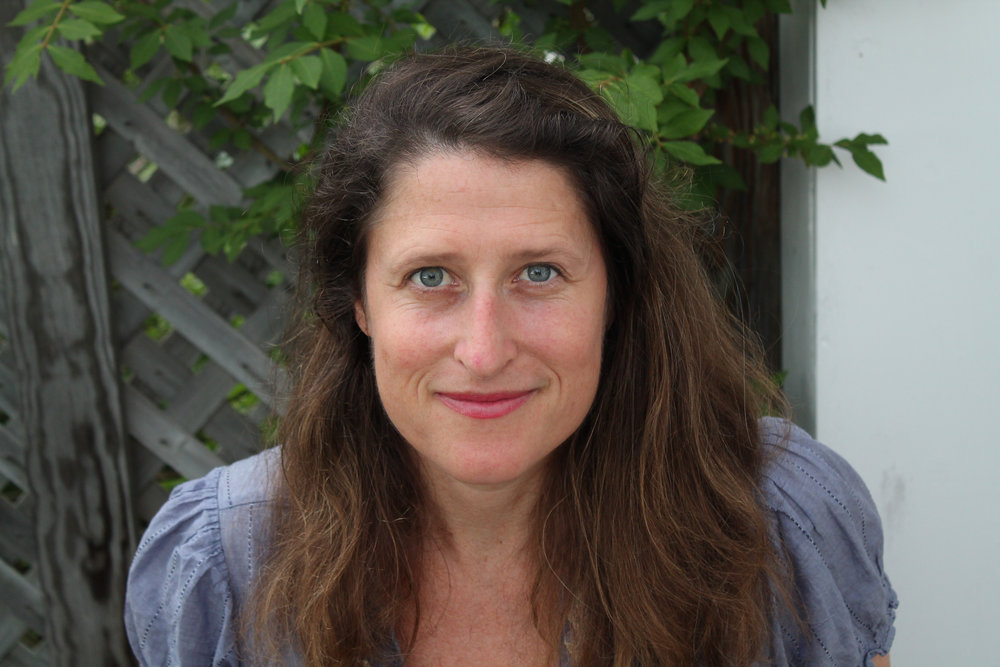 Julia Shipley is the author of a debut collection, The Academy of Hay, which was a finalist for the 2016 Vermont Book Award. Her work has also appeared in Green Mountains Review, Gettysburg Review, Harvard Review online, Orion, Poetry, and Verse Daily.
Julia Shipley is the author of a debut collection, The Academy of Hay, which was a finalist for the 2016 Vermont Book Award. Her work has also appeared in Green Mountains Review, Gettysburg Review, Harvard Review online, Orion, Poetry, and Verse Daily.
Her poem, "Porcupine," appeared in Issue Ninety-Three of The Collagist.
Here, she speaks with interviewer Christina Oddo about ragmented speech, the challenge of revealing something appealing, and secrets of a porcupine.
The format, of course, caught my eye immediately, even before I began reading. What prompted this decision?
I wanted the poem to reenact the tree’s crevice graphically (along the lines of “form is an extension of content”). Also, in heightened situations, (of extreme cold or intense emotion) speech tends to issue in fragments, in bursts, in quills-- if you will--of expression, and so I hoped to recreate that staggered phrasing.
I think a lot of young or new poets and writers struggle with finding the perfect symbol, metaphor or image for a piece—something that can drive the work, the anticipated themes and the beautiful language. What advice can you give to us in this regard?
Um, I think a lot of middle-aged and quasi-experienced writers also struggle? Or at least this poet does. I think the objective (at any age remains) to begin and investigate and obey something that seizes you—a scene, a phrase, and an object. And then the challenge remains: to find out what else this scene /phrase/ object is about and reveal that in a way that’s appealing, intriguing and relevant.
Also, (I am now going to try to say what I said above in a different way) when I arrive at the page with an agenda, with something “I want to say”—I am infinitely less successful than when I try and slow dance with the information on hand, taking my cues from it. I can’t force poems. Maybe others can, but I can’t.
How were you able to pinpoint the porcupine as the source of what makes this poem so great?
I love your question with its embedded pun, right?—pinpoint the porcupine?
First of all, it’s a pretty crazy animal—its very body is a weapon. Also, like many things in my life—I never actually saw this porcupine because the animal had merged with the tree (in more than one way), but I sensed its presence. I can think of so many other instances where I can’t point (pun) to a truth, but I can feel it, the clues are everywhere. Much like the existence of a secret: this animal was both hidden and evident.
What experience, if any, led you to find this image—the porcupine—as suitable to expose your current and deepest sentiments?
I think I work opposite or reverse to the way this question is phrased. I start with a memory, a scene, an idea and tunnel into it (like the porcupine) to find out why it interests me; I get a draft down and work with what’s interesting.
I think it might enrich this interview to mention this poem took about 10 years to write. At first it was a pretty unremarkable prose paragraph, which included a line about how the porcupine was stuffed up in the tree the way a woman wears a tampon. (I know: Lovely!)
I found the structure late in the game (trying to recreate a tree’s cavity with the form of the poem, as well simulating the way intense expression is exhaled in bits (or at least that's the way I stutter towards my point). I shared later versions of the poem with an online poetry class and got feed back about what wasn't clear and clarified based on that input.
What are you working on?
My first collection The Academy of Hay crashed the idea of “female” into the idea “farmer.” My current/subsequent obsession is a deliberate confusion/misunderstanding/mash-up of “ingestion” and “pregnancy.” So I am getting ready to give four of my non poetry reading friends a draft of the manuscript with the working title: An Animal Inside an Animal to get their input. I was really inspired by Ada Limon who said her poems in Bright Dead Things were written to engage the most immediate people in her life, and not just her literary cohort/poetic contemporaries.
What have you read recently?
I’ve been engrossed with Anne Carson’s Float, Ocean Vuong’s Night Sky with Exit Wounds, Tracy K. Smith’s Life on Mars, and Elizabeth Scanlon’s Lonesome Gnosis. A consequence of (sometimes) reviewing books, I no longer simply read a book, as much as I interrogate it. Structure? Sequence? Themes?…and all these aforementioned books keep yielding to second and third reads, keep teaching me things about poems and collections of poems. Meanwhile I’m eagerly awaiting Jenny George’s debut collection The Dream of Reason. Also, I’m a huge fan/cyber-stalker of Jill Osier’s poems.
